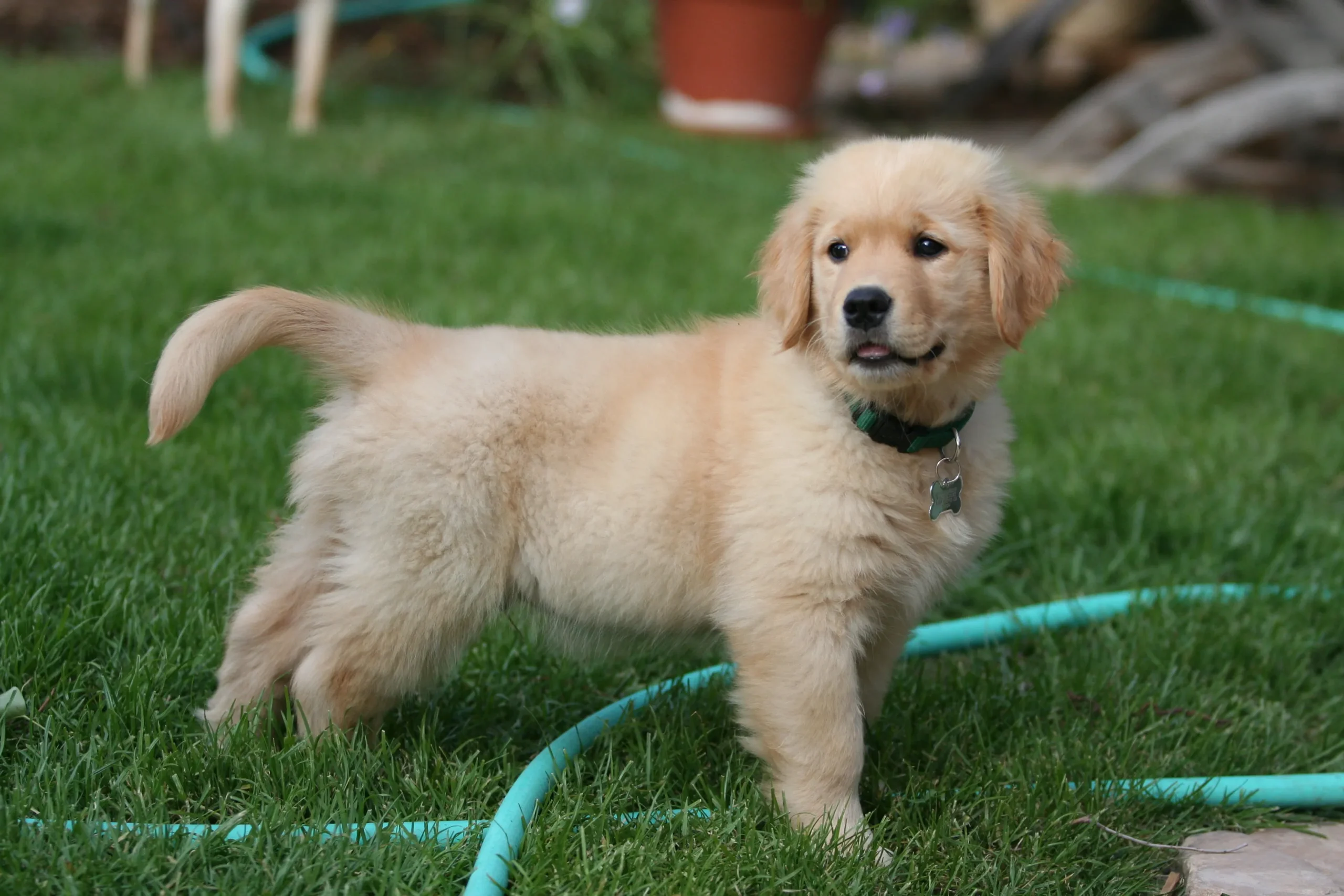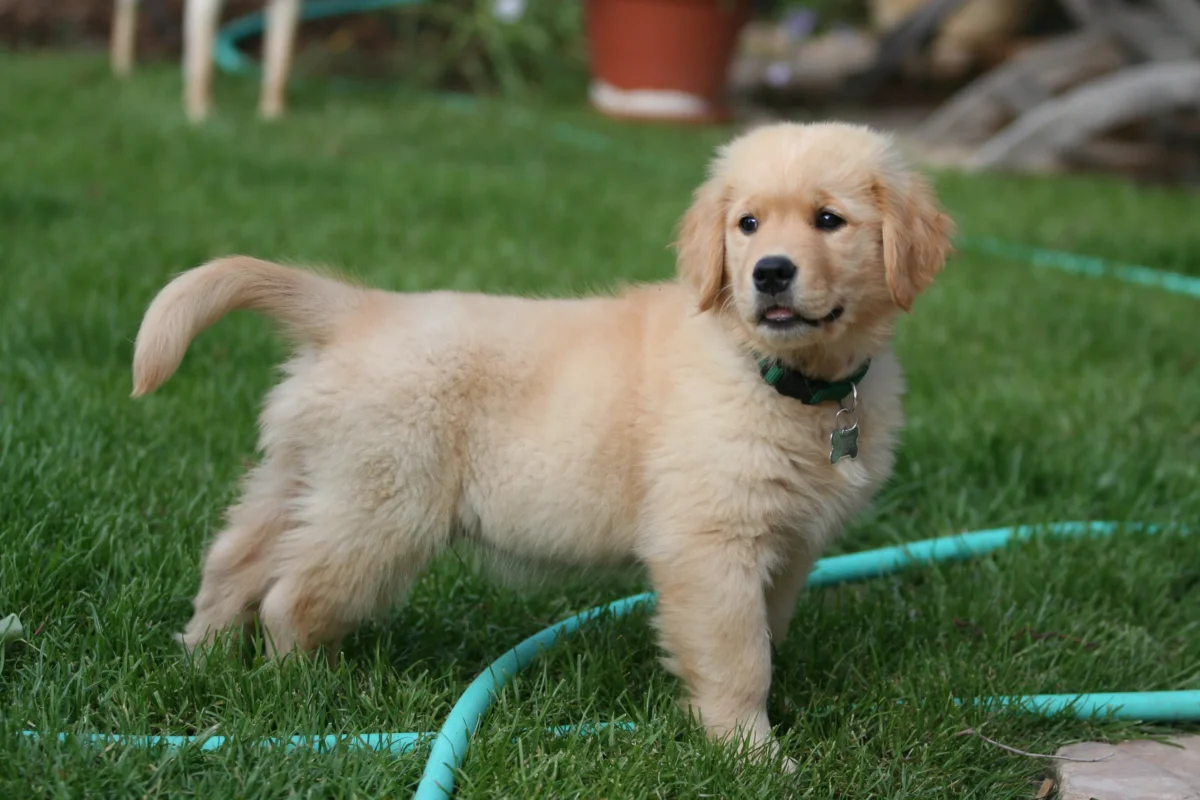Are you considering getting a golden retriever as a pet? While these adorable dogs are known for their friendly and loyal nature, it’s important to be aware of the potential downsides before making a decision. In this article, we’ll explore some of the less desirable aspects of owning a golden retriever. From their high energy levels to their tendency to shed, we’ll give you an honest look at the challenges that come with this popular breed. So, if you’re curious to learn more about the not-so-great things about golden retrievers, keep reading!
When it comes to golden retrievers, their boundless energy can be both a blessing and a curse. While their enthusiasm for playtime and exercise is infectious, it can also be exhausting. If you’re not prepared to provide them with daily physical activity and mental stimulation, you may find yourself with a bored and potentially destructive dog. So, if you’re not up for the challenge of keeping up with a highly energetic breed, a golden retriever may not be the best fit for you.
Another aspect to consider is the grooming needs of golden retrievers. While their luscious coats are undeniably beautiful, they also require regular maintenance. These dogs are notorious shedders, and their fur can quickly accumulate around your home. Brushing their coat several times a week is essential to prevent matting and keep their fur looking its best. If you’re not willing to commit to regular grooming sessions, you may want to think twice about bringing a golden retriever into your home.
Health Issues in Golden Retrievers
As a dog lover who owns both a golden retriever and a Goldendoodle, I have had firsthand experience with the joys and challenges of owning these wonderful breeds. While golden retrievers are known for their friendly and loyal nature, it’s important to be aware of some potential health issues that can affect them. Here are a few things to keep in mind:
Hip Dysplasia
Golden retrievers are prone to developing hip dysplasia, a common condition where the hip joint does not develop properly. This can result in pain, lameness, and arthritis. Regular exercise, maintaining a healthy weight, and providing joint supplements can help reduce the risk and manage the symptoms of hip dysplasia.
Progressive Retinal Atrophy (PRA)
PRA is an inherited eye disease that affects golden retrievers. It causes a progressive loss of vision which can eventually lead to blindness. Regular eye check-ups with a veterinarian can help identify early signs of PRA and allow for timely intervention and management.
Cancer
Unfortunately, golden retrievers have a higher risk of developing certain types of cancer compared to other breeds. Some common cancers in this breed include lymphoma and hemangiosarcoma. Early detection, regular vet check-ups, and a healthy lifestyle can help manage these risks to some extent.
Heart Conditions
Golden retrievers can also be prone to various heart conditions such as heart murmurs, dilated cardiomyopathy, and subvalvular aortic stenosis. Regular cardiac screenings and routine check-ups can help monitor and manage these conditions.
Remember, this is not an exhaustive list of health issues that can affect golden retrievers. It is always a good idea to consult with a veterinarian who can provide personalized advice based on your dog’s health history and individual needs.
Owning a golden retriever or a Goldendoodle comes with its own set of responsibilities. It’s important to stay informed about their health issues, provide them with proper care, and monitor their well-being closely. By being proactive and attentive, you can help ensure a long and healthy life for your furry companion.
Shedding and Grooming Challenges
Owning a golden retriever or a Goldendoodle comes with many joys, but it’s important to be aware of the challenges that come along with these lovable pets. One of the biggest challenges is dealing with shedding and grooming.
Shedding: Golden retrievers and Goldendoodles both have dense double coats that protect them from the elements. While their thick fur might keep them warm in colder climates, it also means that they shed a lot. Get ready for a house covered in golden hair! Regular brushing can help remove loose fur and minimize shedding, but it’s something you’ll have to do often to stay on top of it.
Grooming: Keeping your golden retriever or Goldendoodle looking their best requires regular grooming. Both breeds benefit from professional grooming sessions every few months to keep their coat healthy and tidy. This includes a thorough bath, brush, and trim. Additionally, regular at-home grooming is necessary to prevent matting and keep their fur looking its best.
Matting: Golden retrievers and Goldendoodles are prone to matting, especially in areas with longer fur, like their ears, tail, and underbelly. Matting occurs when dead hair gets tangled and forms clumps. It not only looks unkempt but can also be uncomfortable for your furry friend. Regular brushing and combing can prevent matting and ensure your dog remains comfortable.

« Discover the Surprising Secret to Achieving the Perfect Weight for Golden Retrievers – Vet-Approved Tips Revealed
Warning! The Shocking Truth About Feeding Peanut Butter to Golden Retrievers You Need to Know »
Ear Care: Due to their floppy ears, golden retrievers and Goldendoodles are susceptible to ear infections. It’s essential to check and clean their ears regularly to prevent any issues. Consult with your vet on the best method and products to use for ear cleaning.
By being aware of the shedding and grooming challenges that come with golden retrievers and Goldendoodles, you can be better prepared to keep your furry friend looking and feeling their best. Regular grooming, including brushing, bathing, and monitoring their ears, will help maintain a healthy and happy pet.
Remember, every dog is unique, and the amount of shedding and grooming required may vary. Consulting with a groomer or veterinarian can provide personalized advice based on your dog’s specific needs.
High Energy and Exercise Needs
Golden retrievers and Goldendoodles are known for their friendly and loyal nature. They make wonderful pets and companions, but it’s important to be aware of some of the challenges that come with owning these breeds. One aspect to consider is their high energy levels and exercise needs.
1. Need for Daily Exercise: Both golden retrievers and Goldendoodles are active breeds that require daily exercise to stay happy and healthy. This means you’ll need to make sure you can provide them with regular opportunities for physical activity. Whether it’s playing fetch in the backyard, going for long walks, or engaging in interactive play, be prepared to spend time each day keeping them active.
2. Mental Stimulation: In addition to physical exercise, it’s important to provide mental stimulation for your golden retriever or Goldendoodle. These intelligent breeds thrive when given tasks to complete and challenges to overcome. Puzzle toys, obedience training, and interactive games are great ways to keep their minds sharp and prevent boredom.
3. Potential Consequences of Inadequate Exercise: If you neglect to meet their exercise needs, both golden retrievers and Goldendoodles may become bored and restless. This can lead to destructive behaviors such as excessive chewing, digging, or even barking. Regular exercise not only helps to keep them physically fit, but also reduces their tendency to engage in destructive behaviors.
Remember, providing enough exercise and mental stimulation for your golden retriever or Goldendoodle is essential for their overall well-being. It not only helps to maintain a healthy weight, but also keeps them happy and content.
As a dog lover and someone with experience working at animal shelters and veterinary offices, I understand the importance of meeting the needs of these energetic breeds. Regular exercise and mental stimulation are key to ensuring a harmonious relationship with your furry companion.
Stay tuned as we continue to explore other aspects of owning a golden retriever or Goldendoodle.

Destructive Chewing Habits
As much as you love your golden retriever or Goldendoodle, there are a few things to consider when it comes to their behavior. One of the potential challenges you may face is their destructive chewing habits.
Both golden retrievers and Goldendoodles have a natural instinct to chew. This behavior is especially prominent when they are puppies, but it can continue into adulthood if not addressed. When left alone or not given sufficient mental stimulation, they may resort to chewing on anything they can find. This can include shoes, furniture, and even electrical cords.
The primary reason behind this behavior is boredom and excess energy. If you’re unable to provide them with enough exercise and mental stimulation, their chewing habits can become destructive. It’s important to remember that chewing is a normal behavior for dogs and is often a way of relieving stress and anxiety. However, it should be directed towards appropriate toys and chewables.
To prevent destructive chewing, you’ll need to take several steps:
- Exercise: Ensuring that your dog gets enough physical activity is crucial. Regular walks or playtime in the backyard can help tire them out and reduce their need to chew out of boredom.
- Mental Stimulation: Provide your furry friend with interactive toys, treat puzzles, and games that challenge their problem-solving skills. Engaging their minds can help redirect their chewing behavior towards appropriate items.
- Supervision: Keep a close eye on your dog, especially during their early training days. If you see them chewing on something they shouldn’t, interrupt the behavior with a firm “no” and quickly redirect their attention to a chew toy.
- Proper Chewing Alternatives: Invest in a variety of chew toys designed for dogs, such as rubber or nylon bones, teething rings, and puzzle toys. Introduce different textures and tastes to keep their interest and prevent boredom.
- Training and Consistency: Consistency is key when it comes to teaching your dog what is acceptable to chew on. Reinforce appropriate chewing behavior with praise and rewards, while consistently redirecting them away from forbidden items.
By incorporating these strategies into your daily routine, you can help curb your golden retriever or Goldendoodle’s destructive chewing habits and ensure they lead a happy and well-behaved life.

Training Difficulties
Training your golden retriever or Goldendoodle can be both rewarding and challenging. While these breeds are known for their intelligence and willingness to please, there are a few factors to consider when it comes to training them effectively.
1. High Energy Levels: Golden retrievers and Goldendoodles have an abundance of energy, especially when they are young. This high energy can sometimes make training sessions a bit more challenging as they can be easily distracted or have difficulty focusing. Patience and consistency are key when training these breeds. Keep training sessions short and engaging, using positive reinforcement techniques to keep them motivated.
2. Distractibility: Both golden retrievers and Goldendoodles are highly social and friendly dogs. While this is a great quality, it can also make them easily distracted during training. They may become more interested in interacting with people or other dogs instead of focusing on the task at hand. It’s important to create a calm and quiet training environment to help them stay focused and reduce distractions.
3. Strong Retrieving Instinct: Golden retrievers, as the name implies, have a natural instinct for retrieving objects. This behavior can sometimes work against you during training, as they may be more interested in fetching a ball than practicing sit or stay commands. Incorporating the retrieving instinct into training sessions by using it as a reward can be a helpful strategy. For example, ask them to perform a command before throwing the ball.
4. Sensitivity: Golden retrievers and Goldendoodles are gentle and sensitive dogs. Harsh or punishment-based training methods can be detrimental and may lead to anxiety or fearfulness. Opt for positive reinforcement training techniques, such as using treats, praise, and affection, to motivate and encourage your dog. This will create a stronger bond between you and make training a more positive experience.

Remember, every dog is unique, and what works for one may not work for another. It’s essential to tailor your training approach to your individual dog’s needs and personality. If you’re struggling with training difficulties, consider enlisting the help of a professional dog trainer who can provide guidance tailored specifically to your golden retriever or Goldendoodle.
By understanding and addressing these training challenges, you can set your golden retriever or Goldendoodle up for success. With patience, consistency, and positive reinforcement, you’ll be on your way to a well-behaved and happy furry companion.
Conclusion
When considering whether a golden retriever or Goldendoodle is the right pet for you, it’s important to weigh the pros and cons. These breeds are known for their friendly and loyal nature, but they do come with some challenges.
Firstly, their high energy levels require daily exercise and mental stimulation. If you can’t provide them with enough activity, they may become bored and resort to destructive behaviors.
Secondly, shedding can be a significant issue. Their dense double coats shed a lot, so regular grooming is necessary to prevent matting and keep their coat healthy.

In terms of health concerns, golden retrievers are prone to various conditions such as hip dysplasia, progressive retinal atrophy (PRA), cancer, and heart conditions. However, with proper care, including regular exercise, maintaining a healthy weight, and regular check-ups, these risks can be managed.
Lastly, training can be challenging due to their high energy levels and strong retrieving instinct. Patience, consistency, and positive reinforcement techniques are key to successful training.
While golden retrievers and Goldendoodles make wonderful pets, it’s important to be aware of their exercise needs, grooming requirements, and potential health issues. With the right care and attention, they can bring years of joy and companionship to your life.







